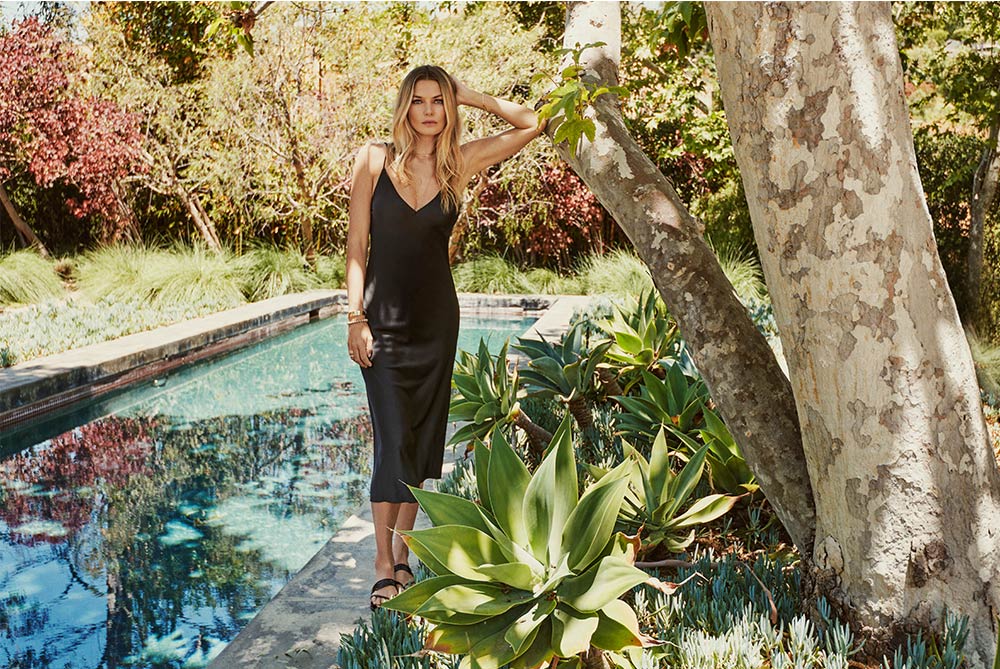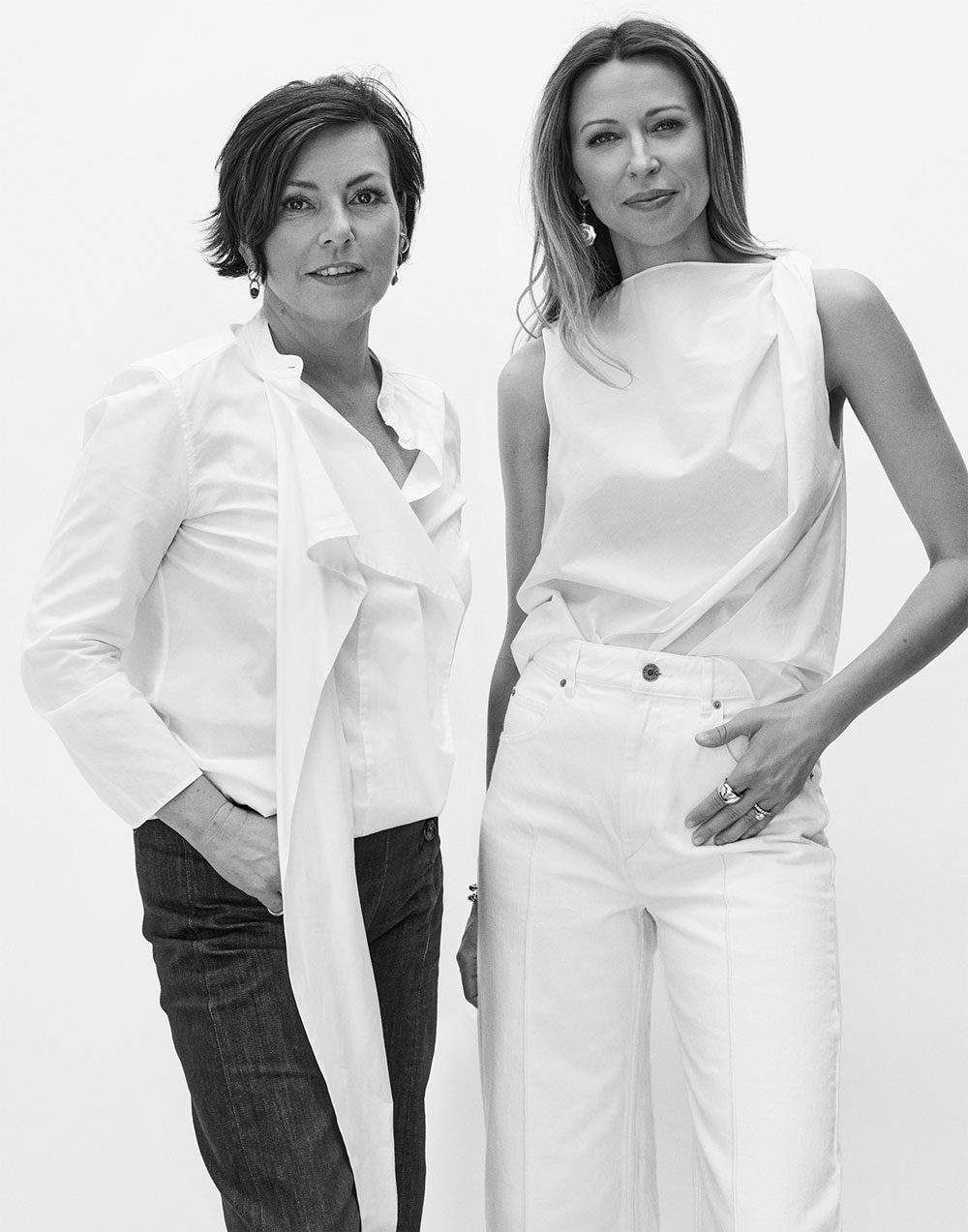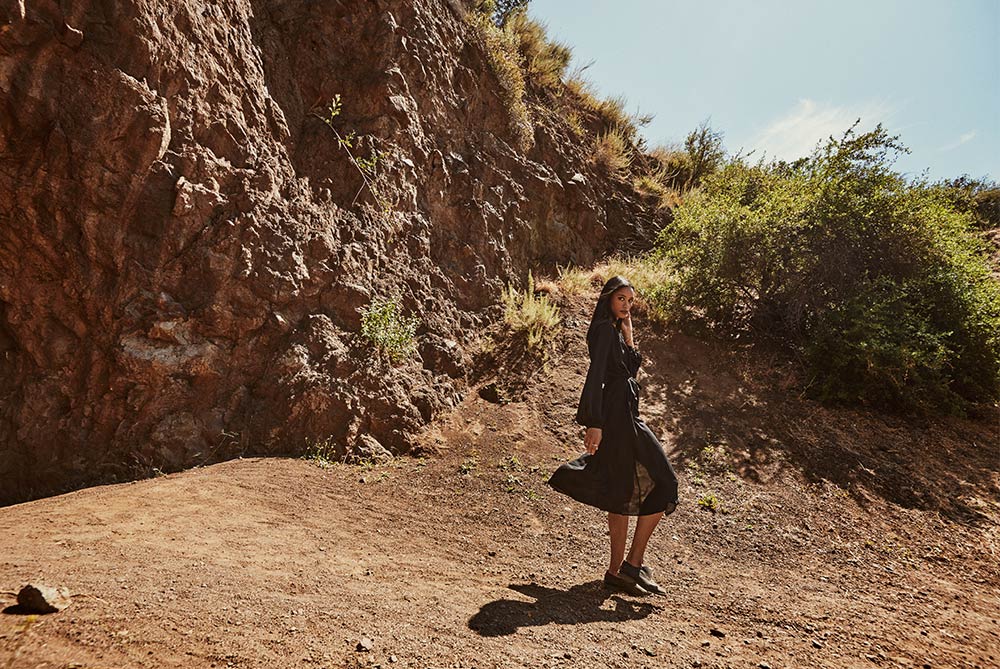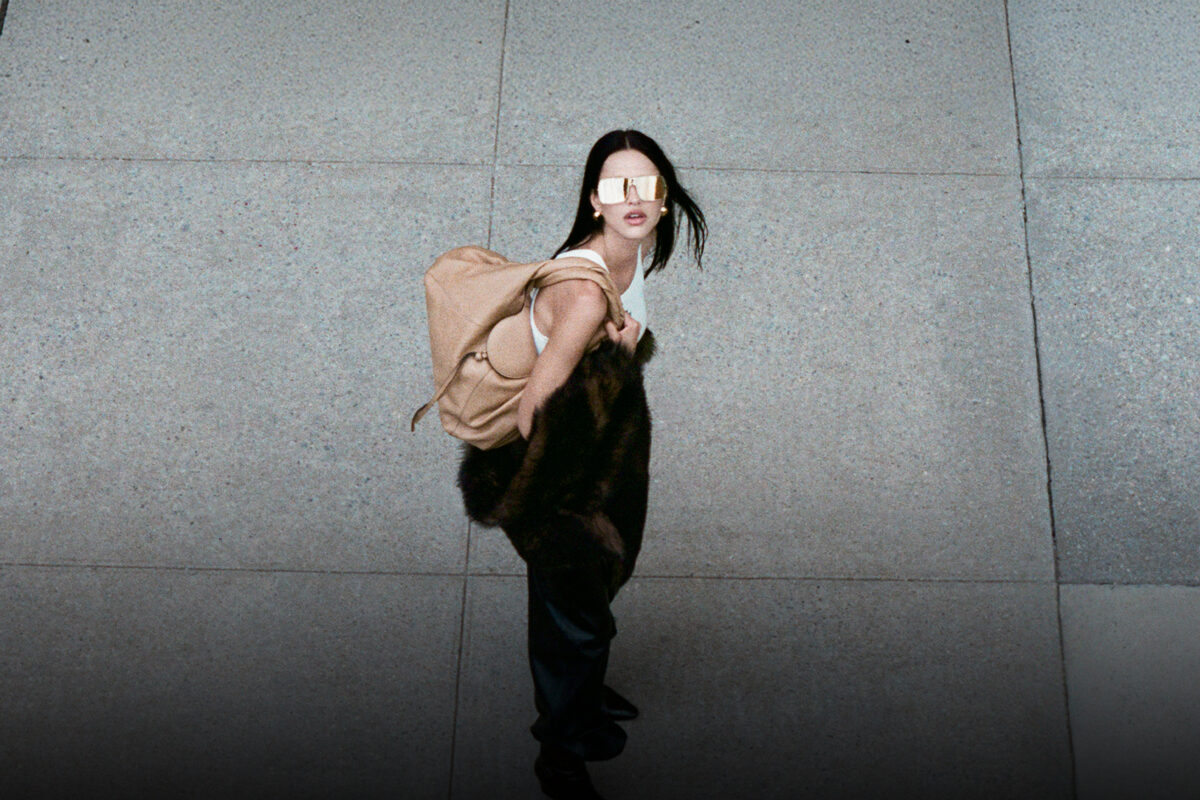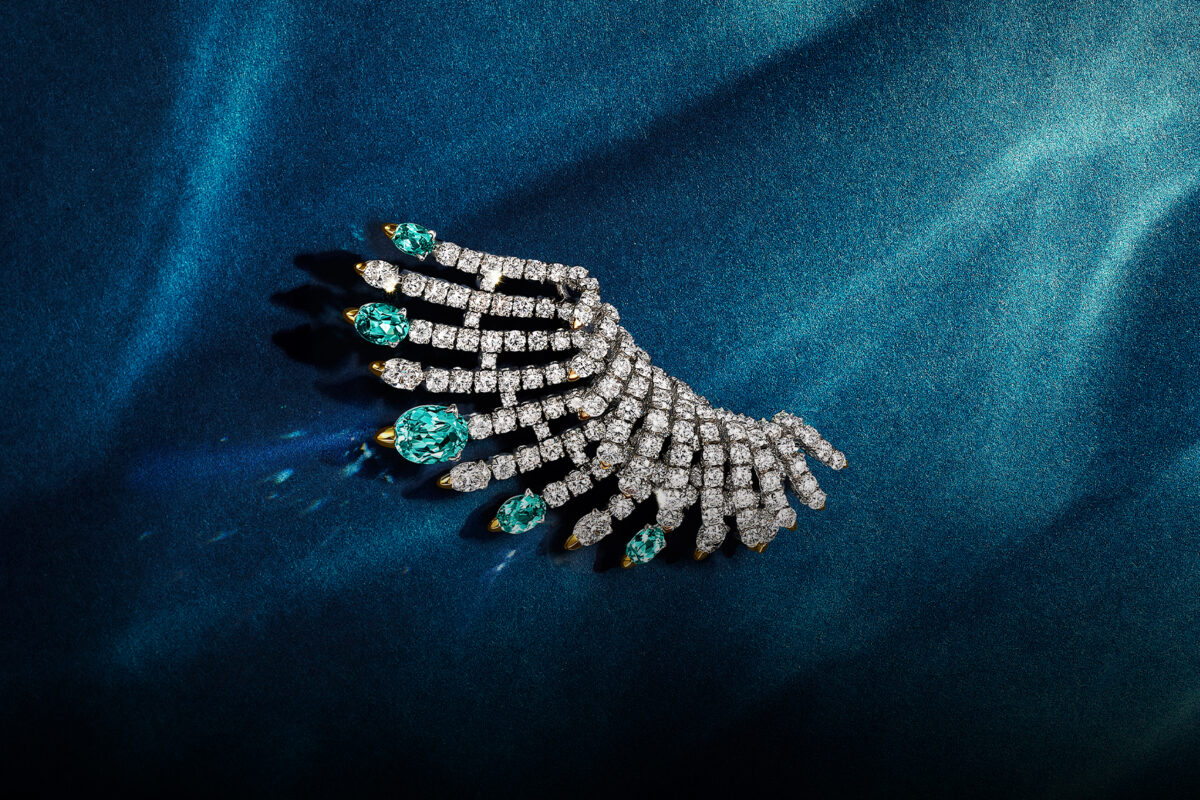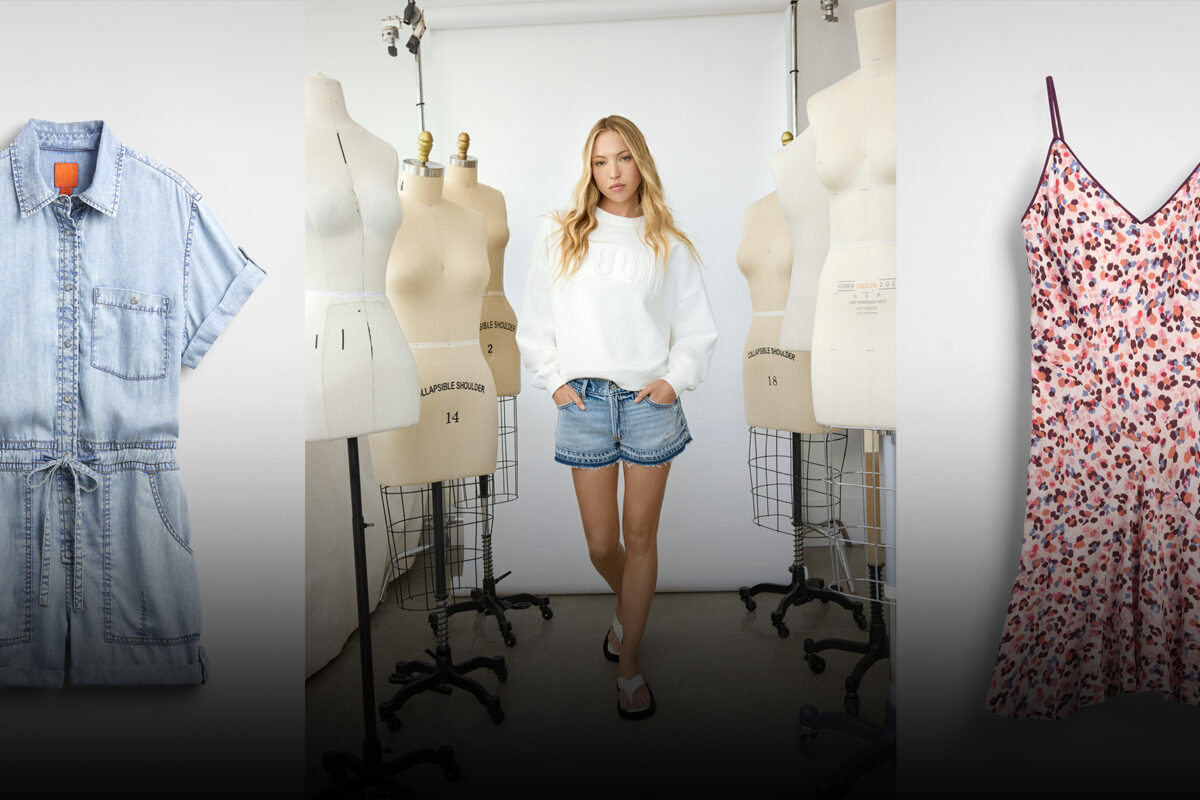The California-based label Careste has launched modern made-to-order clothing with a conscience
Words by JAKE HEDDAEUS
Is the future of retailing one without inventory? For California-based womenswear brand Careste, it is. In an industry plagued by overproduction and environmentally questionable practices, the brand incorporates a no-inventory, made-to-order business model that reduces waste for a more eco-friendly supply chain. Each piece from the line, available in a range of 21 sizes, doesn’t get produced until a customer purchases it.
Having soft-launched at the end of 2018 with zero-waste custom shirts, the direct-to-consumer apparel brand spent the next year ironing out kinks in production before debuting a sustainably made collection in June 2020 that includes skirts, dresses and tops made from natural silk and cotton sourced from the same European mills who count the finest French and Italian brands as customers.
Model JESSICA HART wears the CARESTE Maria slipdress, $565. Photo and styling by Christian Hogstedt and Erin Walsh.
Co-founders Celeste Markey and Elizabeth Rickard Shah share a collective 40 years of experience in fashion and luxury. Markey, the company’s CEO, was a PR and marketing executive, while Elizabeth designed for legends like Giorgio Armani and Sonia Rykiel. Both women have founded companies prior to Careste, an attribute Markey says is key when partnering with a co-founder.
“I founded a marketplace before this, and Elizabeth had a custom shoe collection,” Markey explains. “Finding somebody, regardless of whether or not they’ve been successful, who built something and understands that when you’re building something, you have to be a generalist and learn a lot.”
To achieve a no-inventory offering — meaning nothing is cut or sewn until a customer buys it — the San Francisco-based company partnered with factories across Europe and Asia that specialize in the production of luxury garments. When an order is placed on the brand’s newly revamped website, Careste requires just eight days to make the garment — an ambitious timeline for made-to-order clothing. The result is less waste with no unsold inventory relegated to a landfill or incinerator, plus it is able to offer each piece in half sizes to ensure precise fit and customer satisfaction.
CARESTE founders ELIZABETH RICKARD SHAH and CELESTE MARKEY. Photo by Christian Hogstedt.
Among the brand’s standout pieces, the Talitha Caftan is a resort-ready, full-length kimono-inspired dress cut from a zebra print silk satin, bringing an element of glamour to a leisurely day. The bias-cut satin Georgia skirt and spaghetti-strap Lucy camisole pair well together, reminiscent of the smooth look and cool hand of an ultraluxe pajama set, but are a pair of strappy heels away from being dinner party-appropriate. The versatility and ease of the collection makes sense for the do-it-all-and-look-good-doing-it woman that Careste is designing for, someone educated and socially engaged and committed to a sustainable future — a woman that the CEO describes as not dissimilar to herself.
“Finding somebody, regardless of whether or not they’ve been successful, who built something and understands that when you’re building something, you have to be a generalist and learn a lot”
CELESTE MARKEY
For Markey, the Sonia dress served as a case study for the versatile nature of the offering. “I can put on sneakers with it. And I wear it with high-tops all the time. And it instantly feels cool. Like she’s just out running errands.” For a smarter look, the silk Georgette shirtdress, she says, works long after sunset. “Pre-COVID, I wore it to my brother’s 40th birthday. I wore a bunch of gold jewelry and a really great stiletto bootie and looked totally pulled together.”
Model DESTENE KINSER wears the CARESTE Sonia shirtdress, $525. Photo and styling by Christian Hogstedt and Erin Walsh.
In an age when online fashion has never been more competitive, and brick-and-mortar retail has a pandemic to contend with, an innovative business model is not enough to ensure success. But add to that some sound ethics and easy, adaptable designs appropriate for these times, and you might just have a winning recipe.
Feature image: Model DESTENE KINSER wears the CARESTE Maria slipdress, $565. Photo and styling by Christian Hogstedt and Erin Walsh.
July 28, 2020
Discover more STYLE news.

